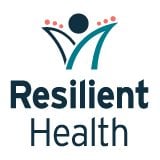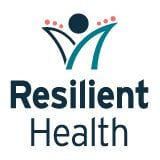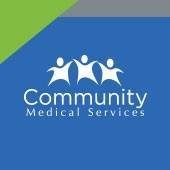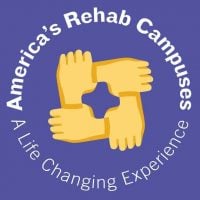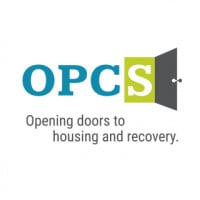About Southeastern AZ Behavioral Health Services in Arizona
Southeastern AZ Behavioral Health Services, located in Sierra Vista, Arizona, is a mental health and addiction facility offering specialized treatment services for individuals with alcohol and drug addiction, dual diagnosis, and opioid addiction. Established in 1976, SEAZBHS is the go-to resource for quality and comprehensive care, providing personalized treatment plans tailored to the specific needs and goals of each individual.
SEAZBHS offers an array of treatment options including aftercare support, drug rehab, dual-diagnosis, intensive outpatient and outpatient options, as well as dialectical behavioral therapy (DBT), family therapy, group therapy, individual therapy, motivational interviewing, and trauma therapy. All services are provided by caring and dedicated professionals, and the facility is accredited by SAMHSA and has a state license. Additionally, the facility is affiliated with Southwest Behavioral Health Services and accepts private health insurance. With a compassionate and professional team, SEAZBHS provides top-notch care for those struggling with addiction and mental health disorders.
Genders
Ages
Modality
Additional
Accreditations
State License
SAMHSA
Conditions and Issues Treated
Many people who struggle with opioid addiction need to attend specific programs like methadone , Suboxone or Vivitrol clinics.
These types of programs will provide the patient with legal, prescription medications that can help them overcome their cravings for illegal opioids like heroin or fentanyl . If the patient has a chronic condition like Hepatitis C, they must undergo treatment before they can begin taking these medications.
Dual Diagnosis is a specific relationship between two or more disorders that have the same symptoms and can sometimes be treated together. This is used in the treatment planning process when dealing with drug addicts. Dual diagnosis can be viewed as a chronic medical condition that has comorbid psychiatric disorders.
Although addiction and a mental illness may have separate symptoms that are not easy to detect, they often go hand in hand. Many times, drug abuse is a direct result of the mental illness. In other words, treating the addiction will not resolve all of your issues. Unless you also treat the underlying mental illness, you will not be successful in achieving sobriety.
Levels of Care Offered
This center offers a variety of custom treatment tailored to individual recovery. Currently available are Aftercare Support, Drug Rehab, Dual-Diagnosis, Intensive Outpatient, Outpatient, with additional therapies available as listed below.
An intensive outpatient program is usually the first phase of addiction treatment. It provides relief for those who are addicted, but are not ready to commit to an inpatient setting. Typically, the patient lives at home and is able to work or go to school. IOPs consist of a daily 3 to 5-hour program, and there is a required number of hours per week. Most patients go to IOP between 20 and 40 hours per week. The patient attends group counseling and individual therapy throughout the duration of treatment. They also meet daily with their therapist to discuss how it’s going and where they are in the recovery process.
The goal here is to teach patients healthy coping skills, such as stress management and identifying thoughts and behaviors that lead to relapse. The implementation of these skills will be useful as the individual transitions into the next phases of treatment.
An outpatient treatment program is set up to help with alcohol or drug addiction, or a co-occurring disorder. The patient must attend the Arizona facility for their therapy and other programs but are able to return home each night. The frequency of mandatory attendance decreases after much of Southeastern AZ Behavioral Health Services‘s program is complete.
Aftercare is a term that’s used to refer to any sort of continuing care offered for a drug addict who has voluntarily entered a rehabilitation program. This type of care can be provided in several settings, including outpatient therapy sessions after the addict has completed an inpatient program. There are also 12-step support groups, such as Alcoholics Anonymous, which can provide additional help for addicts trying to stay sober.
Therapies & Programs
Individual Therapy is a critical component of addiction recovery. Therapists work with patients to identify the root of their addiction and figure out how to better handle the issues that led to them using drugs. Individual Therapy is the one-on-one session where people meet with their therapist. Individual therapy provides a safe space for people to open up and discuss personal and sensitive topics which they may not feel comfortable discussing in a group setting.
Family therapy will also help families realize that the addiction is not their fault. For many years, people blamed themselves for an addict’s behavior and felt that they had done something wrong. This is not the case. Addiction is a disease, and it can strike anyone, even if their life seems fine from the outside. It can bring a lot of shame to a family when they have an addict in their midst, but if everyone is open and honest with each other, then they can help everyone stay in recovery.
Group Therapy is utilized by drug treatment centers like Southeastern AZ Behavioral Health Services to provide the recovering drug addict with a platform to talk about their feelings and experiences. It also provides for an opportunity to learn from other addicts who have successfully overcome their addiction.
Group Therapy is employed in lectures, seminars, or discussion groups (the latter two are typically conducted as “therapy groups”). It is recommended that all group members be recovering addicts for this type of therapy to work (though it does not exclude others with lived experience).
Trauma therapy is a clinical process that helps individuals deal with mental stress often caused by traumatic events. It is generally done for children, teenage victims of sexual assault, and war veterans. The therapist helps the person identify, understand and work through the problem. This is done with the help of talking about it in group or one-on-one counseling sessions. Therapists use relaxation, role-playing, art, and music to help the person open up about what is bothering them.
Dialectical Behavior Therapy (DBT) is used by drug treatment centers across the United States to help drug addicts become sober. DBT combines traditional behavioral treatments with elements from DBT, including dialectics, distress tolerance, and interlocking issues. It is commonly used to treat Borderline Personality Disorder (BPD) along with substance abuse disorders. The four DBT modules are mindfulness, interpersonal effectiveness, emotion regulation, and distress tolerance.
Cognitive behavioral therapy is also a popular service for individuals living with addiction. This type of supportive treatment uses both one-on-one counseling and group sessions to teach addicts how to identify thoughts, behaviors and emotions that might increase their risk of relapse.
These professionals can help addicts develop coping skills for managing stress, improving self-esteem and overcoming triggers. They might also use behavioral therapy to help addicts learn how to avoid cravings and warning signs that could lead them back into addiction.
Therapy can be used as a step-down from inpatient treatment or as the primary method of overcoming an addiction. No matter which option is best for the addict, they will teach important emotional coping techniques, which can make it easier for addicts to get through the tough days.
Payment Options Accepted
For specific insurance or payment methods please contact us.
Is your insurance accepted?
Ask an expert, call (888) 674-0062
Southwest Behavioral Health Services Associated Centers
Discover treatment facilities under the same provider.
- Southwest Behavioral Health - Bullhead City Outpatient in Bullhead City, AZ
- Southwest Behavioral Health Services - Flagstaff Outpatient in Flagstaff, AZ
- Southwest Behavioral Health Services - Kingman Outpatient in Kingman, AZ
- Southwest Behavioral Health Services - Prescott Valley Outpatient in Prescott Valley, AZ
- Southwest Behavioral Health Services - Lake Havasu Outpatient in Lake Havasu City, AZ
Learn More About Southwest Behavioral Health Services Centers
Additional Details
Specifics, location, and helpful extra information.
Sierra Vista, Arizona 85635 Phone Number(520) 458-3932 Meta DetailsUpdated November 25, 2023
Staff Verified
Southeastern AZ Behavioral Health Services Patient Reviews
There are no reviews yet. Be the first one to write one.
Sierra Vista, Arizona Addiction Information
Arizona has some of the highest rates of prescription drug abuse in the United States. Methamphetamines, heroin and morphine are among the most commonly abused substances. Prescription pain relievers were prescribed to 348 million people in 2012, enough to medicate every adult in Arizona for 2 full weeks. The number of people with substance use disorders in Arizona has remained relatively constant over the past few years.
The most commonly abused drug in Sierra Vista is marijuana, with 3.8% of the population abusing it in the past month. In 2016, there were 948 drug-related arrests in the city. 70% of the general population who abuse drugs was under the age of 21. In 2015, there were 1,405 admissions to treatment centers for heroin addiction. There are a variety of therapies in Sierra Vista, including cognitive-behavioral therapy and motivational interviewing.
Treatment in Nearby Cities
- Page, AZ (376.5 mi.)
- Kearny, AZ (110.3 mi.)
- Parker, AZ (295.1 mi.)
- Sun City West, AZ (189.5 mi.)
- Nogales, AZ (43.2 mi.)
Centers near Southeastern AZ Behavioral Health Services
The facility name, logo and brand are the property and registered trademarks of Southeastern AZ Behavioral Health Services, and are being used for identification and informational purposes only. Use of these names, logos and brands shall not imply endorsement. RehabNow.org is not affiliated with or sponsored by Southeastern AZ Behavioral Health Services.




